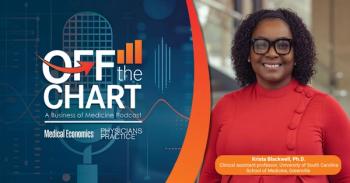
The Potential of Telemedicine
The potential of telemedicine will give physicians and their patients new treatment options and better avenues for information exchange.
The cover of the 1925 issue of Science and Technology magazine shows an artist's depiction of a doctor diagnosing a patient remotely "by radio."
This could certainly be described as foreshadowing the era we are currently entering into, where new technology and treatment options allow some patients to access medical care from remote locations or even the comfort of their own homes.
Telemedicine is defined by the American Telemedicine Association as "the use of medical information exchanged from one site to another via electronic communications to improve a patient's clinical health status."
So defined, telemedicine includes a wide and growing variety of electronic medical information and the ways that it is exchanged. From smartphone technology to virtual patient visits, from rural locations to new military applications, telemedicine is poised to assist physicians in the task of providing excellence in patient care.
CMS says telemedicine "… seeks to improve a patient's health by permitting two-way, real-time interactive communication between the patient, and the physician or practitioner at the distant site. This electronic communication means the use of interactive telecommunications equipment that includes, at a minimum, audio and video equipment."
Telemedicine is currently used in record keeping, pharmaceutical prescribing, real-time patient clinical encounters, and remote procedures. Patient visits with video and audio as well as laboratory evaluation of blood components are just the tip of the telemedicine iceberg. Telemedicine offers options in areas of challenging accessibility both geographically and logistically, which provide possibilities for improvements in patient care. There are options for convenience in patient care that offer tantalizing possibilities for using the technology that most people carry in their pockets (a smartphone) for faster and very effective access to clinicians, patient data, and treatment histories - all at the time of need.
The possibilities are endless: from e-prescribing to video visits to in-the-field evaluation of blood testing at a remote village in another continent to fitness trackers on the wrist of joggers in Central Park, the exchange of data and information under the umbrella of telemedicine offers opportunities for effective patient care that is timely.
Telemedicine also prompts physicians to re-examine their understanding of medical ethics, legislation, and licensure requirements that could challenge them to examine closely held fundamental beliefs. Even standards of care might need discussion and revision due to the new clinical options that technology makes possible. Is a physician in a different geographical location subject to the rules and regulations of the patient's home state? Where does the responsibility for follow-up and referral reside - with the patient, the physician, or another entity? There may also be other considerations in the event of physician/patient disagreement, treatment failure, or other unexpected outcomes.
While these considerations exist, telemedicine remains a technology that offers options that appear to be able to influence patient care in ways that have never been available.
The potential of telemedicine will likely give physicians and their patients new treatment options, modalities, and better avenues for information exchange.
R. Taylor Scott, DO, is an osteopathic family physician and educator based in East Lansing, Mich. Do you believe that physicians should embrace telemedicine? Tell us at editor@physicianspractice.com. Unless you say otherwise, we'll assume that we're free to publish your comments in print and online.
This article was originally published in the March 2016 issue of Physicians Practice.
Newsletter
Optimize your practice with the Physicians Practice newsletter, offering management pearls, leadership tips, and business strategies tailored for practice administrators and physicians of any specialty.









